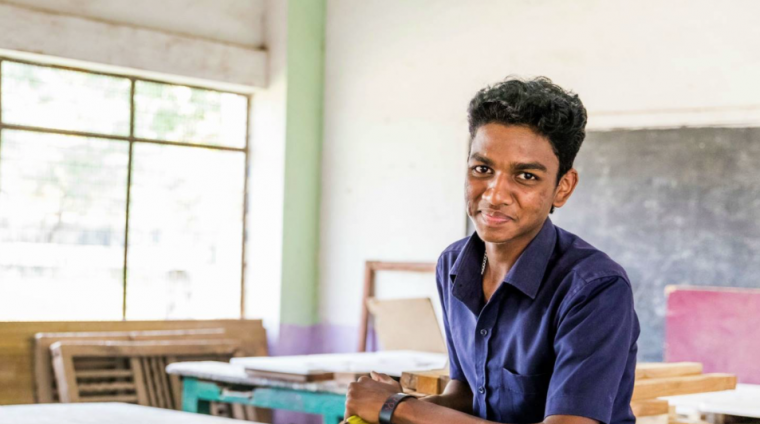How giving up coffee for Lent can help end slavery
This Wednesday, my 16-year-old daughter Ellie and I are giving up coffee (or in her case, chocolate) for Lent, for a reason that might surprise you. While cutting out my main source of caffeine will no doubt give me a health kick, I'm not taking on this challenge to cut my dependency on a morning coffee, but to take steps towards ending slavery in supply chains.
40 million people are in slavery today and Ellie and I are using the 40 days of Lent to fight for their freedom by joining International Justice Mission's (IJM) interactive #SlaveFree Lent challenge.

A few years ago, I'm not sure I'd have realised there was a need for me to try and live 'slave free'. I wasn't oppressing anyone, I certainly didn't consciously do anything that connected me to people in slavery. It's only recently that my eyes have been opened to how close slavery is to each one of us.
Seventy-one per cent of UK businesses believe there is a likelihood of slavery in their supply chains – that's staggering.
When I learned that there is a risk of slave labour in so many of the everyday products that I use – everything from the coffee I drink first thing in the morning, to the mobile phone I use and the chocolate biscuit I eat in the afternoon – I knew I had to do something about it.
Two children are sold into slavery every minute. Let's pause for a second. Two children every single minute of every single day. Children who had hopes, dreams and ambitions – like my daughter Ellie.
And what disturbs me deeply is that without knowing it, all of us consume products made by people – including children – in forced labour slavery.
Modern day slavery is horrendous, but the issue can feel overwhelming and incredibly complex.
Many of us don't run the businesses that supply us with products. So, what can we actually do?
Actually, as consumers, we can do quite a lot.
This Lent, IJM's #SlaveFree challenge gives us all some simple steps that we can take to be part of the fight:
1. Sign up for regular updates over the 40 days of Lent showing how you, as a consumer, can challenge slavery in supply chains and make practical shopping choices that help stop slavery.
2. Give up a product that often has slavery in its supply chain for the 40 days of Lent. Make-up, coffee and chocolate are just a few options. This is not because boycotting will stop slavery, but because it helps us focus our minds on how close it is to us all.
3. Donate what you save to help IJM stop slavery at source. IJM rescues almost 100 people from slavery and oppression every week – including from forced labour. You can be part of the rescue team by giving what you save from giving something up.
By giving what you save on chocolate, you can help set children like Suriya free.
At 11 years old, Suriya was tricked into a life of slavery in a sweet factory.
For five years, he and his young cousin, Vijay, were trapped by an abusive factory owner who beat the boys and even scalded them with hot oil for tiny mistakes.
When Vijay escaped back to his family, IJM assisted the police in arresting the factory owner and freeing everyone he was holding captive. Sadly, Suriya couldn't be found.
Police searches repeatedly came up fruitless. Months wore on and Suriya's father, Arumugam, said: As days went by without finding success, I started worry whether Suriya was dead or alive.'
One day, after tireless searching, a message came: 'Today, it is such a joy for me to share that Suriya was once lost but now he is found.'
'I was not able to control my tears when I saw Suriya for the first time after many years,' said his father, Arumugam. 'Without the police and IJM we wouldn't have got our son back.'
Exploitation and slavery in global supply chains should not be normal. Sadly, right now, it too often is. As consumers, corporations and governments we urgently need to increase our action to make 'slave-free' normal.
As I begin this 40-day season of reflection and preparation for Easter, I am reminded of the biblical invitation to 'act justly and to love mercy and to walk humbly with your God'. There are so many ways that we can respond to this mandate, and I believe joining this global movement to fight injustice is one of them.
It is possible to end slavery in our lifetime, but we all need to play our part and unless we act, children like Suriya and Vijay won't be free. Join Ellie and I by signing up for the #slavefreelent challenge here:
David Westlake is chief executive of IJM UK. Find out more about IJM here.











